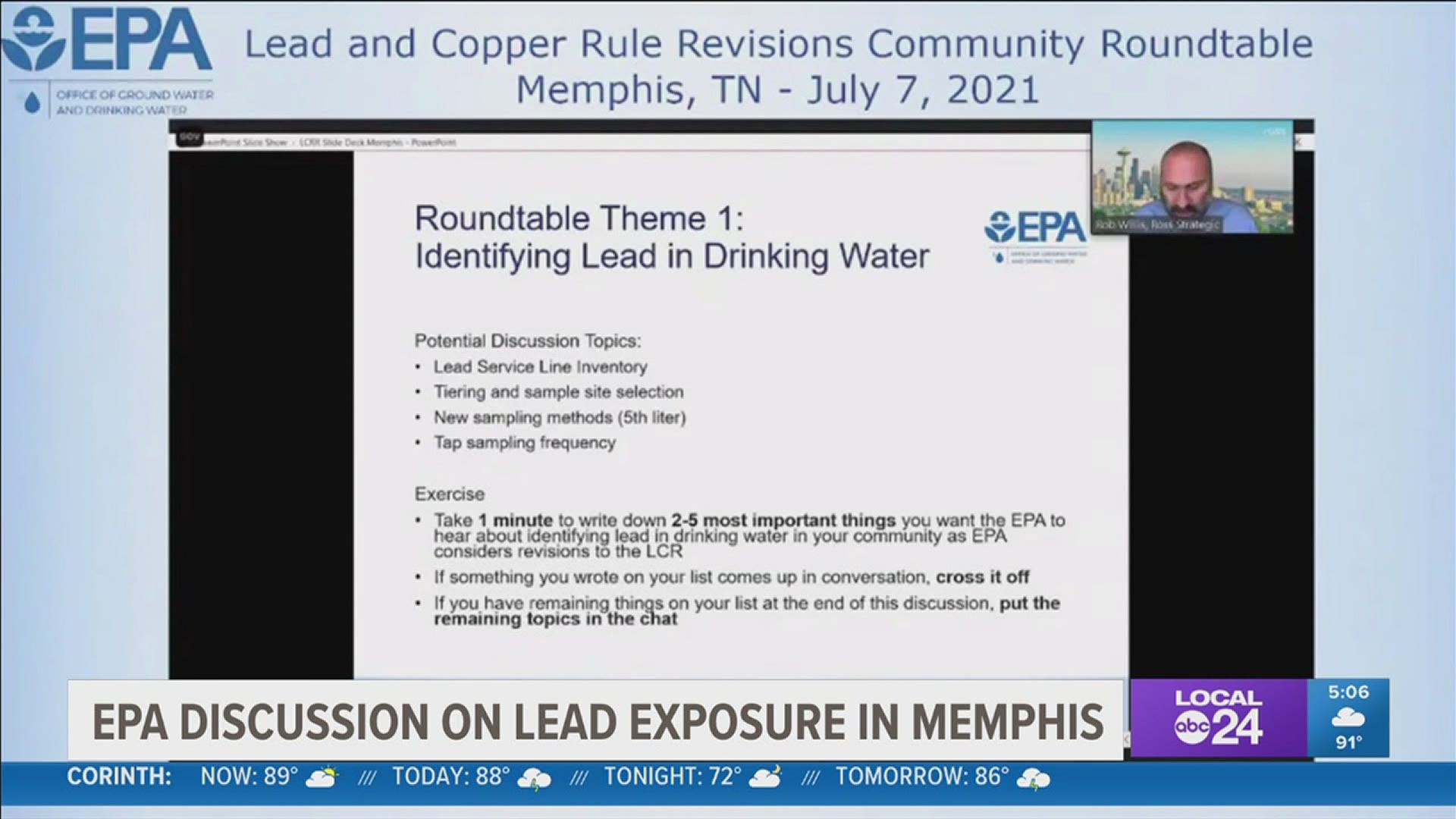MEMPHIS, Tenn. — A roundtable was held this week between Memphis leaders and the U.S. Environmental Protection Agency over lead exposure in drinking water.
Federal leaders were giving information about the revisions to the lead and copper rule. They wanted to ensure the rule is grounded in the actual experiences of residents who were impacted from the effects of lead in drinking water, especially in African American and LatinX communities.
Lead exposure can lead to a lot of mental and physical issues, especially in kids.
Local reps said that there needed to be things done now as the EPA works to replace pipes and conduct testing in old schools and homes.
"Those are some things we need to look at beside a filter program, things that could be a cost-effective - because the real issue is what are you going to do about the lead pipes inside someone's home. And so we know that that's going to have to be addressed,” said Chet A. Kibble, Sr., Director, Memphis & Shelby County Lead Safe Collaborative. "Memphis has never been less than 90% of the kids in those areas testing positive (for lead), so getting back to the meeting, we need to look at something we can do now."
Shelby County leaders also mentioned there is lead exposure through other avenues outside of water, and more needed to be done.
Among those in attendance were representatives from Shelby County government and the city of Memphis, Congressman Steve Cohen, and MLGW.
-------------------------------
(EPA News Release) - The U.S. Environmental Protection Agency (EPA) hosted a roundtable yesterday with organizers representing Memphis, Tennessee to highlight the experience of local communities with lead in drinking water. This roundtable discussion, along with nine others being held with communities across the country, is essential to informing EPA’s review of the Lead and Copper Rule (LCR) revisions to ensure that the rule is grounded in the lived experience of individuals and communities that are most at-risk of exposure to lead in drinking water.
“Reducing exposure to lead—in water or elsewhere in the environment—is essential to protecting the health of our children and supporting vibrant communities in Memphis and cities across the southeast,” said John Blevins, EPA Acting Region 4 Administrator. “Addressing lead in drinking water will require partnerships and strong leaders and I want to thank the community groups that organized this roundtable for their leadership on this issue of public and community wellbeing.”
“Lead poisoning from drinking water is a serious concern, so I am pleased that the EPA was in Memphis today to discuss how MLG&W and others in our community can work with it to proactively address the problem,” said Congressman Steve Cohen. “In Congress, I have introduced legislation that would provide a tax credit of up to $4,000 to help homeowners replace lead service lines to their home. The INVEST in America Act that passed the House last week has $45 billion to fully replace lead service lines across the country. I will continue to work with President Biden’s administration and my House colleagues to upgrade America’s infrastructure.”
"Memphis has been a frontline EJ community for decades,” said LaTricea D. Adams, Chair of the Shelby County Lead Prevention & Sustainability Commission. “We have prided ourselves on our aquifer with some of the most pristine water in the world, but the aquifer can't protect us from dilapidated infrastructure and legacy pollution with lead service lines which are highly concentrated in African American and Latinx communities. Today's LCRR Community Round Table is the first step toward dismantling white supremacy and environmental racism. We can't wait any longer for environmental and restorative justice.”
Roundtable participants included Shelby County officials; the office of Mayor Jim Strickland; state and local elected officials; Memphis Light, Gas & Water; Sierra Club; the Gates Foundation; and others.
Additional information on the virtual roundtable, including how to watch a recording, is available at: https://www.epa.gov/ground-water-and-drinking-water/lead-and-copper-rule-revisions-virtual-engagements.

